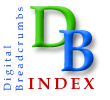
| Search |
 |
||||||||
| Words | Images | Audio | Scholar | ||||||||
|
||||||||
|
The ways people navigate digital spaces associated with play, such as video games, are also the ways people can navigate digital spaces associated with research. As scholars such as James Gee (2003), Johndan Johnson-Eilola (2005), Barbara Mirel (1996), Stuart Moulthrop (2004), and Albert Rouzie (2005) contend, the practices associated with play can be crucial to successful engagement with digital spaces--largely because they can prepare people to deal with what may initially seem to be an overwhelming amount of information, what Johnson-Eilola (2005) refers to as the "datacloud." For Gee (2003), for instance, video games encourage inquiry-based, active learning that situates game players as producers who must decide how to act based on the consequences of previous actions. Players make choices among multiple options through reflection on the effects of past behaviors. These informed choices, together with the excitement of unknown outcomes, can lead to productive results for those students playing researcher. Our research shows that Janine and Adrian both succeed as researchers in this "datacloud" by valuing what Anne Wysocki (2004) called "the particular and the messy" (p. 168). They use the surprises and juxtapositions of ostensibly disordered, inefficient searches to generate ideas and make connections. Indeed, it is the seemingly unstructured process of searching that gives meaning and enjoyment to their research ventures--and helps them create structures for the texts they seek to produce. Consequently, it becomes ever more important for us to understand how users can--and do--associate research with play. Such an approach differs from the traditional perception of research as a defined, linear pursuit of specific, known materials and asks us to consider the value of research models based less on efficiency and more on reveling in process. If we accept Barbara Mirel's (1996) definition of invention as the discovery, selection, and retrieval of appropriate information (pp. 102-103), then such activities can be inventional--making what are often taken to be unengaged, aimless behaviors productive parts of composing. Indeed, the participants in this study find such work an important part of topic generation and idea development for their academic writing tasks. |